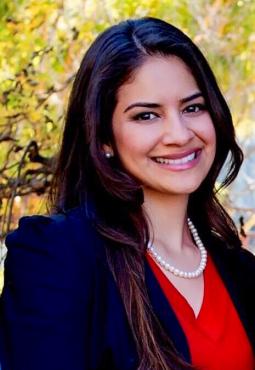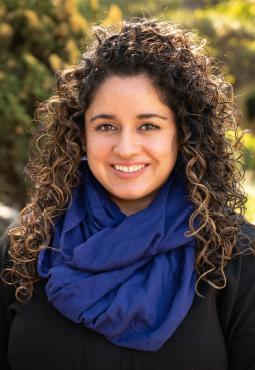“My parents’ first language is Spanish. I saw them struggle with hospitals.”
Marisol Trujillo is describing how, as a child, she’d watch her proud mother and father become frightened and confused whenever they had to deal with institutions ill-equipped to handle non-English speakers. She’s far from alone.
“Dad had thyroid cancer when I was a little girl,” recalled Mariela Gallo. It still pains her to remember her father’s fear of the hospital, how he wouldn’t speak up for himself. “I’ve lived through his saying ‘yes’ to everything the doctor said and never asking questions.”
It can be intimidating, even terrifying, to be seriously ill and walk into a sprawling, bustling place where the conversations are unintelligible, urgent-looking unreadable signs cover every wall, people try to direct you here or there but you don’t understand what they’re saying, the doctors don’t speak your language and you’re unable to express your many concerns.
Those early memories stayed with Trujillo and Gallo when each joined City of Hope about a dozen years ago (Trujillo worked as a Child Life specialist; Gallo is a health education specialist). They wanted to play a role in making the hospital experience easier, more responsive and culturally sensitive for Spanish-speaking patients and their families.

Both eagerly signed on when El Concilio (“The Council”) came into being in 2011. Today, they run the program.
Similar to the slightly older (2008) Patient and Family Advisory Council, the 14-member El Concilio is made up of City of Hope staff plus a bevy of volunteers — former patients and their families and caregivers. The group meets twice a month to look at different elements that may need tweaking for the Spanish-speaking community.
It can be something simple: Are there proper Spanish language directions to the parking lot? Or complex: How do we train our psychologists to draw out reluctant patients fearful of mental health services? El Concilio members raise red flags when they see a problem, then work on solutions to solve it.
At any given meeting, the group might be involved in translating brochures, forms or educational materials, revamping the standard new-patient orientation videos to be more culturally sensitive, or advising “guest” participants — visiting physicians, nurses, etc. — about language, family and cultural differences.
“It’s just helpful to have a dedicated group that can address cultural barriers,” said Gallo. “El Concilio serves as the voice of the [Spanish-speaking] community.”
The Importance of Communication
Often those voices come from personal, even painful experience.
Growing up, Blanca Gonzalez was the translator in her family. A self-described “people-looker,” she sees the pain in people’s faces when they can’t communicate easily with their doctors, “and it breaks my heart.” When her son developed leukemia and needed a bone marrow transplant at City of Hope, Gonzalez found herself benefiting from the many services offered at the Sheri & Les Biller Patient and Family Resource Center. That’s where she heard about El Concilio. She signed up immediately.
“I’ve helped translate a brochure for the Women’s Center, and I’ve worked on their Spanish patient portal,” she said proudly. And though she dreads speaking in public, she’s overcome that fear to hold forth in virtual sessions with doctors’ groups, advocating for her community.
“I love it!” exclaimed Jackie Solano, another volunteer. “I’m able to be part of a greater community, put a stamp on it and represent my Latino roots.” Solano joined El Concilio shortly after she was treated for breast cancer. Coming from a large Mexican family, she’s witnessed one key cultural difference in particular that often gets in the way of proper care: a simple reluctance to speak up.

“We didn’t talk about medical things,” she said. “Especially mental health. I thought I could help break that stigma. To let people know it’s OK to see a doctor. It’s OK to be scared. Also, people need to advocate for themselves. They need to ask questions.”
Patients appreciate the effort.
“Extreme gratitude,” observed program heads Gallo and Trujillo. They’ve shadowed Spanish-speaking patient advocate Terry Hernandez and seen patients react with joy when they suddenly realize they are being heard, understood and valued.
“They want to hug me — they’re so grateful, we’re both crying,” said Gonzalez, referring to other parents that she’s helped. “We become like family.”
And that may be the unexpected side benefit. More than just a service for patients, El Concilio has brought meaning to the lives of the volunteers themselves.
“It’s a really great way to give back,” said Gonzalez. “I feel like this is my calling.”
The Department of Supportive Care Medicine at City of Hope was the first in the United States to fully integrate across supportive care specialties and into the patient’s clinical care and is one of the largest programs of its kind today. The program provides cancer patients with comprehensive physical, psychological, social and practical support services, including care navigation; survivorship programs; specialists in cancer and aging; Child Life specialists; psychological and spiritual counseling; pain management; integrative medicine such as yoga, massage and meditation; and more — all with a focus on maximizing patient and family strengths, quality of life and the ability to best engage in their treatment journey and beyond. Thanks to a gift from the Biller Family Foundation, City of Hope is working to expand this offering across its cancer care system and to advocate for establishing supportive care as a standard best practice for cancer care in the United States.
